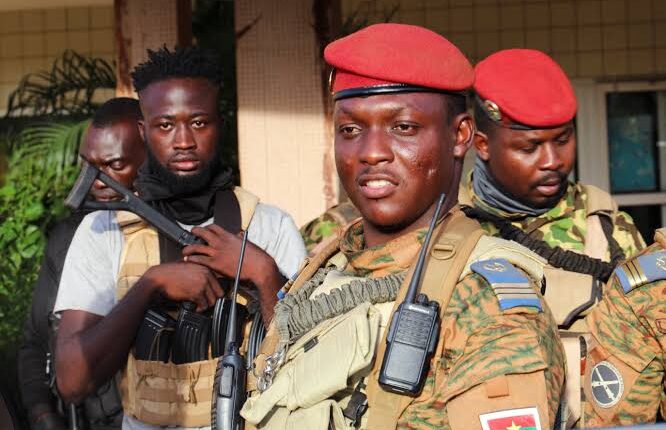Traore’s Propaganda Masks Burkina Faso’s Crisis as Russian Influence Grows
Among the three military leaders who seized power in Burkina Faso, Mali, and Niger, Burkina Faso’s Captain Ibrahim Traore has stood out—not for tangible progress, but for running an aggressive propaganda campaign disguised as Pan-Africanism and anti-imperialism.
While Traore’s supporters hail him as a revolutionary figure confronting Western dominance, critics argue that he has simply replaced it with Russian control, particularly through the Russian Africa Corps—an offshoot of the infamous Wagner Group. The military governments of these three Sahel nations, now united under the Alliance of Sahel States (AES), have expelled French and U.S. troops and withdrawn from the Economic Community of West African States (ECOWAS), which condemned their democratic backsliding.
Despite Traore’s lofty rhetoric, actual conditions in Burkina Faso remain grim. Key economic indicators show no improvement, and violence linked to jihadist insurgency has worsened, with death tolls tripling since the coup. Promises to address the humanitarian crisis, rebuild the economy, and ensure security have largely failed. Meanwhile, civil liberties have eroded, and democracy—suspended since 2022—has been sidelined indefinitely.
Just days after Traore claimed to have foiled another coup attempt, thousands of his supporters, in what was dubbed a “global day of support,” staged demonstrations outside Western embassies in cities including London, Paris, Accra, Ouagadougou, and Kingston. Protesters demanded that foreign powers “leave Burkina Faso and AES countries alone,” with some even threatening violence in London should Traore die unexpectedly.
These protests, like much of the media machinery behind Traore, are believed to be backed by Russia, which is keen to deepen its foothold in Africa by exploiting anti-Western sentiment. Despite deteriorating conditions in AES countries, the Russian-influenced messaging has been effective—revealing how a mix of historical grievance, short-term emotion, and authoritarian nostalgia continues to sway public opinion in parts of Africa.
Traore’s regime has drawn admiration from a section of Nigerians and other Africans, a reflection of what analysts describe as the continent’s struggle with long-term political vision and its recurring embrace of dictatorship wrapped in populist rhetoric.



[…] award ceremony, held at The Emara Ole Sereni Hotel in Nairobi, Kenya, celebrated leading creatives in Africa’s entertainment and digital media industries. Peller, […]